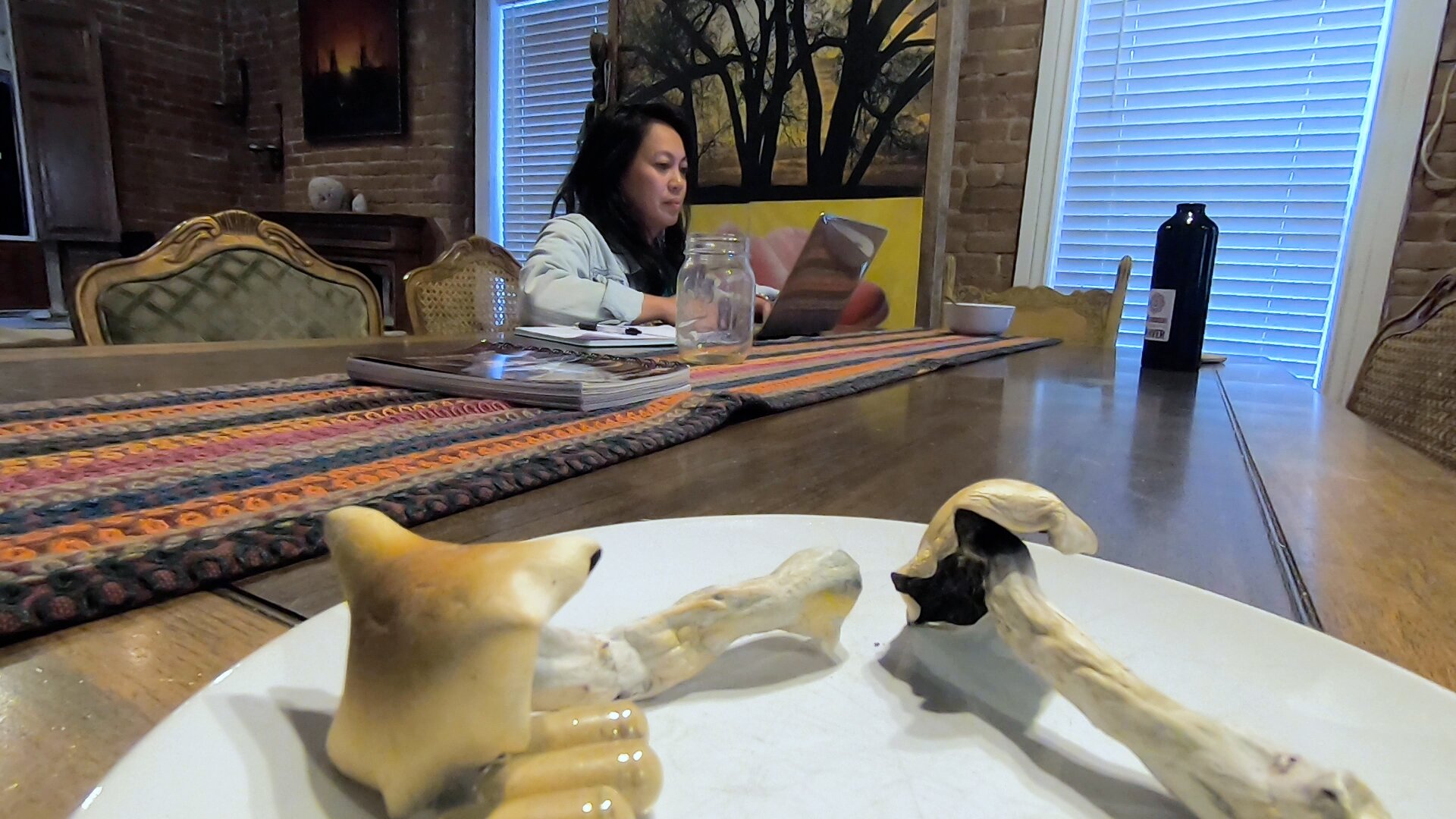Meet the Colorado moms who microdose mushrooms

DENVER — Tracey Tee felt stuck when COVID-19 hit in 2020.
Tee lost her business and the sudden shift in her children's schooling meant more responsibilities at home. Plus, the lack of in-person community left her feeling isolated from any support.
Under the crushing weight of raising children in a once-in-a-lifetime pandemic, Tee was willing to try anything to lift at least some of her spirits.
After reading Michael Pollan’s “How to Change Your Mind: What the New Science of Psychedelics Teaches Us About Consciousness, Dying, Addiction, Depression, and Transcendence,” and attending a webinar on microdosing mushrooms, Tee thought she’d give the practice a try.
Tee had never experimented with illicit drugs, but from what she had heard, the experience of taking a small dose of a psilocybin mushroom seemed different from the ‘60’s-style psychedelic trip the substance is best known for.
Once she took the plunge and swallowed her first capsule of a ground-up mushroom, Tee knew she’d found aid to her life’s stress.
“I just really felt a calm and a space between my world that I hadn’t felt before,” Tee said. “In the same way that you take an antidepressant, that’s what microdosing is.”
During the first several doses, Tee said she felt like she’d taken a hefty dose of caffeine, with slightly more energy and ease going about her day. But over time, Tee said she was able to process trauma and cope with anxiety in ways she’d never been able to before.
“It helps you bring your PTSD, your trauma, your anxiety, any issues that you have to the surface. You kind of look it right in the face,” Tee said. “It’s just easier to show up in life a little bit happier.”
As she continued her microdosing journey, Tee said most of the folks she found with the same interest in microdosing were not mothers. They were primarily younger folks or CEOs of popular companies.
For Tee, the product was simply about making mundane life slightly easier, especially for her fellow mothers. After connecting with other women interested in the idea, Tee started Moms on Mushrooms, a Colorado-based, nationwide group that teaches interested moms about using a small dose of psilocybin mushrooms.
Shayna Bryan, a Denver woman and a member of Moms on Mushrooms, began microdosing in April, after an initial class from Tee’s group. Bryan said the other moms in the group seemed to mirror her struggles as a parent, which is what ultimately made her feel safe enough to try microdosing.
“Everyone has to kind of deal with the same challenges when it comes to motherhood and all of us were kind of looking for something,” Bryan said. “It was really wonderful to watch the other women in the course see the medicine start to work.”
[Related: Psychedelics might be the next big thing in mental health care, experts say]
Bryan and Tee both emphasized that the micro-mushroom experience is not a “trip,” but a very subtle mood booster.
“That energy that I wished I’d had for the last 15 years has come forth, and it’s a vibrancy that I feel so lucky to have found,” Bryan said. “You don’t feel like you’re in college and you just took a bunch of mushrooms and you’re tripping with your friends.”
Courtney, a mother in Colorado who asked not to have her full name used, said microdosing on its own is a hardly noticeable difference in her day, and the real benefits come from meditation, journaling and other healing work alongside the mushrooms.
“What I like to say is it kind of makes you 10% of something: 10% happier, 10% more patient, 10% more creative, 10% more open,” Courtney said. “For me, microdosing allows me to address some mental health challenges.”
While anecdotal experiences have yielded positive results, research on psychedelic usage is limited because such the drugs are illegal at a federal level. Denver voters decriminalized mushrooms in 2019 within the city limits, but purchasing the substance remains illegal. Possessing mushrooms is still prohibited in parts of Colorado outside of Denver.

In efforts to invite research and make psilocybin more accessible to the general population, Coloradans will vote on the Natural Medicine Health Act, which would create regulated access to mushrooms. While users and advocates of the medicine say they are proponents of its decriminalization, many will vote “no,” on the bill as it is written, as they believe its sponsors have not kept racial equity in mind.
“This could be cannabis 5.0, with the same people in charge and the lack of equity, so I am very cautious when it comes to how we do this,” said Melanie Rose Rodgers, a Denver resident and psychedelic advocate who helped with Denver’s decriminalization efforts. “I’m not opposed to legalization. I’m opposed to this legalization that's being rushed.”
Rose Rodgers, a woman of color, said people of color have been using mushrooms and cannabis for thousands of years and have been criminalized for it, while white business owners have profited from legalization.
“My perspective in this comes from social justice. It comes from watching what happens when you legalize in Colorado,” Rose Rodgers said. “I am cautious about what do we do with psychedelics.”
Brian Willie is the content production manager at Rocky Mountain PBS. You can reach him at brianwillie@rmpbs.org.
Alison Berg is a multimedia journalist at Rocky Mountain PBS. You can reach her at alisonberg@rmpbs.org.
